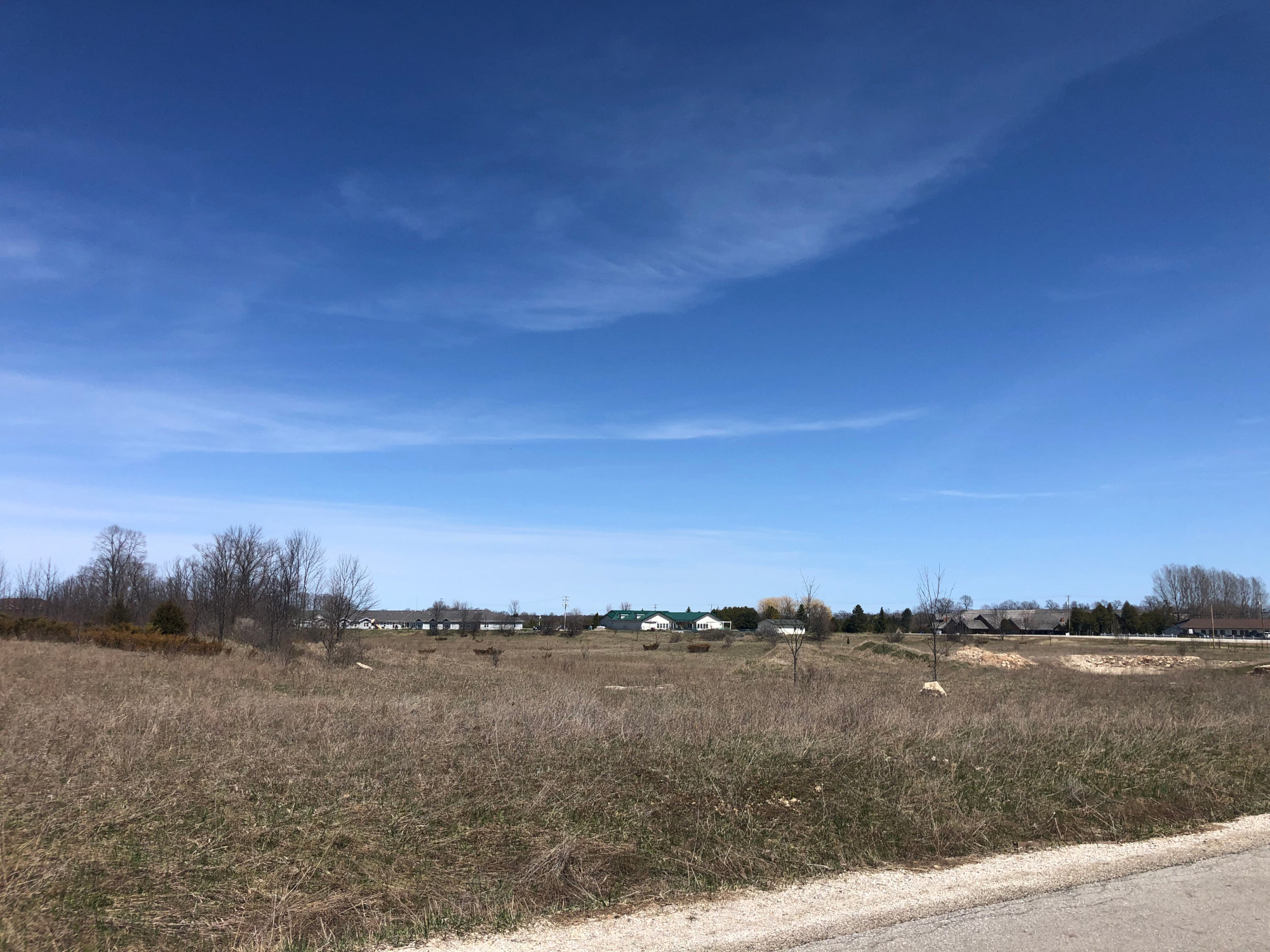Two affordable housing projects in Door County, supported partially by federal funding allocated by the county government, could result in the construction of more than 700 new affordable housing units in the county over the next two decades.
These two projects are a 45-unit housing development in Sister Bay titled The Shoals and a revolving loan fund organized by the Door County Community Foundation in partnership with NeighborWorks Green Bay, a northeastern Wisconsin housing nonprofit. The revolving loan fund is estimated to help fund 700 housing units over the next 20 years, according to NeighborWorks Green Bay President Noel Halvorsen.
A large part of the funding for both projects comes from the Wisconsin Housing and Economic Development Authority (WHEDA), but they will be supplemented by additional federal funds through the county.
More than $5 million was provided to the county under the American Rescue Plan Act (ARPA)—a 2021 federal Covid relief law—of which the Door County Board of Supervisors allocated $1.2 million to the affordable housing initiatives on Feb. 22.
Of that amount, the county earmarked $500,000 for the revolving loan fund (still pending approval by the County Board) and $700,000 for The Shoals (approved March 22).
A 2019 study projected a need of 1,070 affordable housing units in Door County from 2018 to 2023, including 115 beds of seasonal housing. The study also identified an existing shortage of 925 units of affordable housing from 2010 to 2017, including 455 beds of seasonal housing.
These estimates were produced before the pandemic. The two projects together could fulfill a significant proportion of the demand predicted in the study, although on a wider timeline.
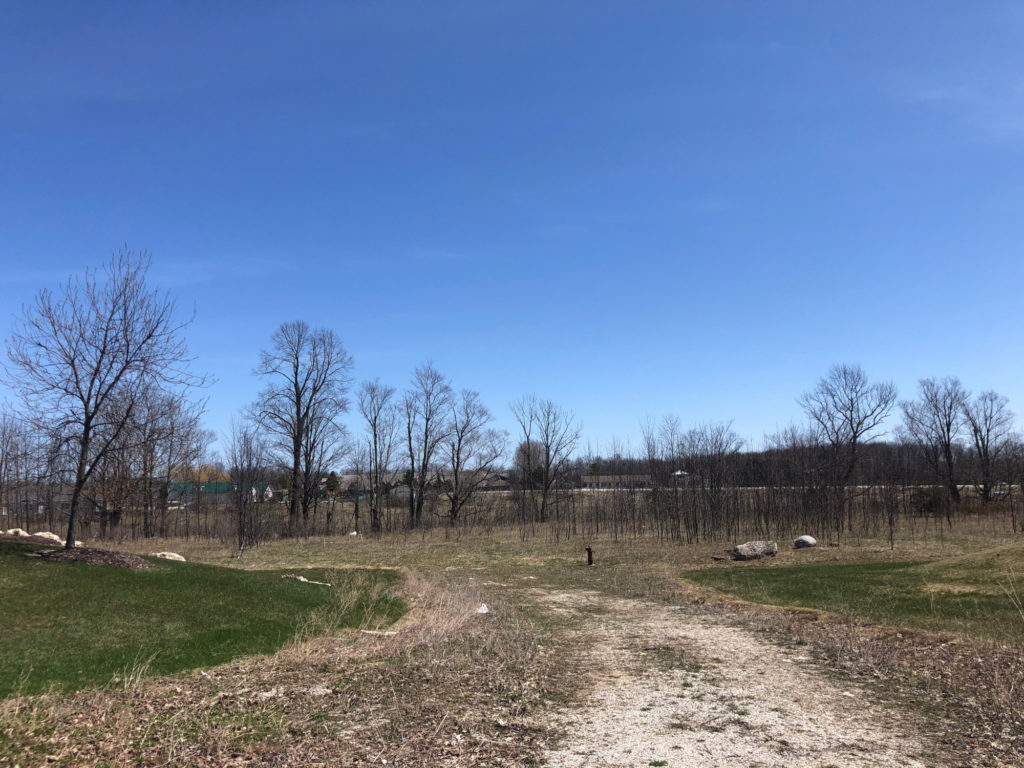
Sister Bay development to start construction in June
The Shoals project, proposed in 2020, will consist of four one-bedroom, 27 two-bedroom and 14 three-bedroom units. In 2021, WHEDA awarded the project $6,176,616 of tax credits, covering the majority of its $11.5 million cost (page 75 of linked document).
The complex is also guaranteed to maintain affordable housing status (meaning tenants must be income-qualified) for the next 30 years due to the terms of the WHEDA funds, making it a potential long-term solution to Door County’s housing crisis.
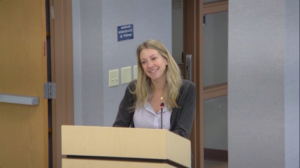
According to The Shoals’ developer, Marissa Downs of Mosaic Ventures, there have been 196 affordable housing units added to Door County in the past 20 years. Only 24 of these have been in Northern Door, she said.
“We are looking at a once in a 20-year opportunity to get some units built under this program,” Downs said.
The Shoals aims to have all 45 units completed within 12 months, with the first units becoming available by the end of 2022. Though current funding is encouraging, there are still roadblocks – building costs, supply chain issues and rising property values in Door County due to an influx of second-home buyers, to name a few.
Time is also of the essence. The WHEDA funds will expire by the end of June if construction has not yet begun. With the approval of the Covid relief budget, that deadline can be met.
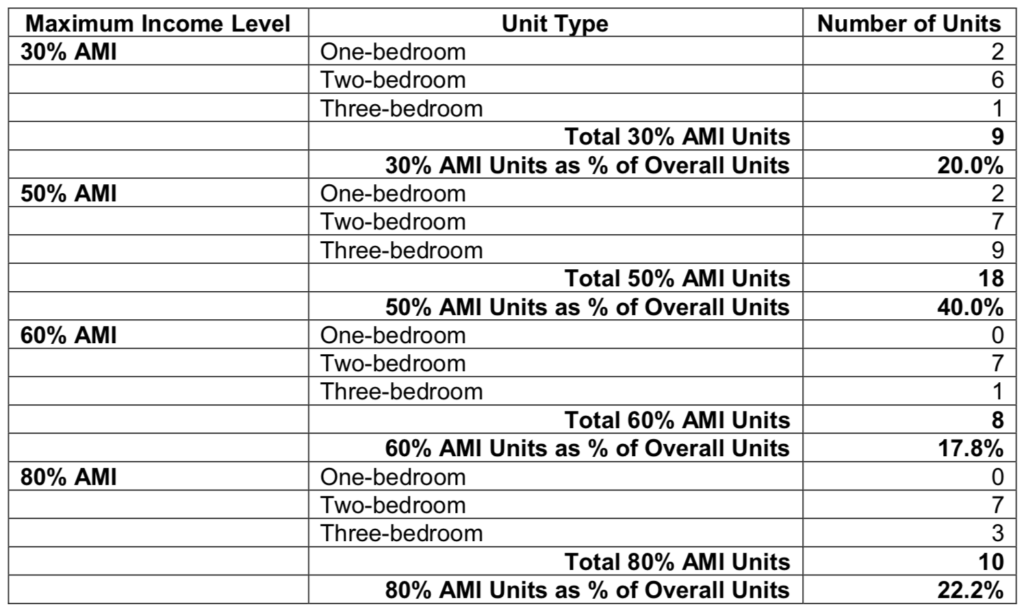
Revolving loan fund could create 700 units
The other $500,000 of Covid relief funding for affordable housing is intended to support a revolving loan fund.
The revolving loan fund would incentivize developers to build in Door County, said Door County Community Foundation director Bret Bicoy in an early February interview with the League of Women Voters of Door County.
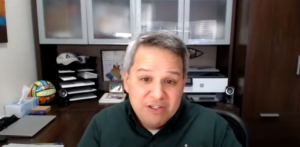
“The challenge is that to qualify for a lot of the dollars that are available, the money that the developer can charge in terms of rent is kept as a percentage of the county median income,” Bicoy said. “Our county median income is less than in a lot of urban communities.”
The revolving loan fund will be a pool of money intended to bridge that gap for developers, making Door County a more desirable site for housing developments.
“We have to create a situation where we level the playing field to encourage the development of these units in our community,” Bicoy said.
According to a January letter from Bicoy to the County Board (page 63 of linked document), WHEDA has approved $1.5 million in matching funds for the initiative. Bicoy proposed matching that $1.5 million with the $500,000 in Covid relief money, combined with $1 million from Community Foundation fundraising, to create a total initial funding pool of $3 million.
As loans are given to developers and then repaid, the funding pool will be replenished.
In the same League of Women Voters interview, county Land Use Services Director Mariah Goode discussed the inspiration behind these projects.
“The two housing proposals that I’ve put forth under the ARPA requests are two things that have been in the works for a few years,” Goode said. “These aren’t just things that we dreamed up because the ARPA money was there; these are things that have been being worked on for the past few years and seemed like a good fit for this money.”
Overcoming roadblocks to affordable housing
Goode has been involved in affordable housing in Door County for roughly 25 years.
In an interview with Knock, Goode explained that there are a number of reasons affordable housing is so scarce in Door County.
Factors such as land, material and labor costs, the Great Recession and regulatory requirements have affected affordable housing on a national level.
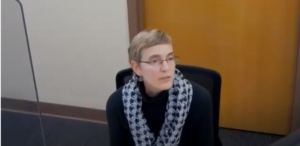
There are multiple unique circumstances in Door County that exacerbate the housing crisis. The first of these is geography.
“Being a peninsula restricts commuting and, therefore, employment options,” Goode said. “It also has made construction more expensive.”
The second unique roadblock is tourism.
“The increased dominance of the tourism segment of our economy places locals with modest incomes in the position of competing for housing against affluent second home purchasers, retirees and a highly profitable short-term rental market which has resulted in the conversion of even many modest homes to tourist rentals,” Goode said.
Goode stressed the importance of affordable housing in Door County by calling attention to the impact it has on locals and laborers.
“We hear daily about young people who grew up in Door County leaving because they can’t afford to stay,” Goode said. “People employed here for years are leaving because they are tired of renting. Families and young people are unable to move here in the first place. Ideal candidates are turning down job offers.”
“Our businesses and nonprofits are suffering and our community is becoming less vibrant and diverse. For our community and its residents to thrive, we need affordable home ownership opportunities.”
Mariah Goode, Door County Land Use Services director
“Home ownership is simply not an option for many people vital to our quality of life and our community’s overall well-being,” Goode added. “Our businesses and nonprofits are suffering and our community is becoming less vibrant and diverse. For our community and its residents to thrive, we need affordable home ownership opportunities.”
The $1.2 million in Covid relief money is offering support to these two solutions with the potential to provide long-term affordable housing.
“About 25 years ago was when the Door County Economic Development Corporation identified affordable workforce housing as a problem in Door County for employers that were trying to find employees,” Goode said. “There’s been a lot of work done over the years, but we still have a long way to go and there are some new solutions that are coming to the forefront that are pretty exciting.”

